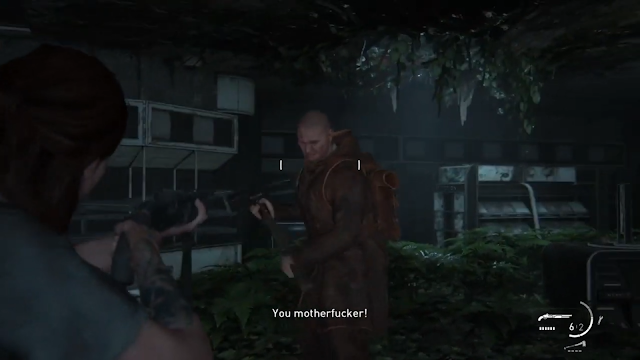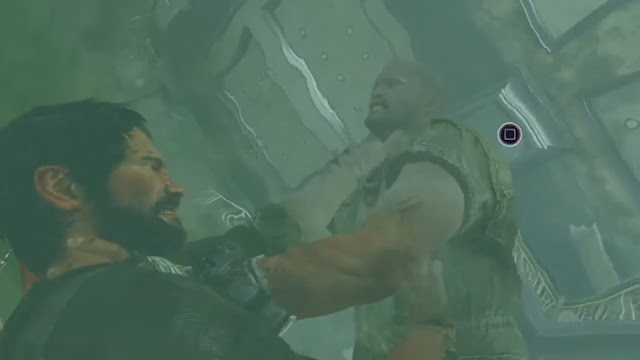The Last of Us Part 2 - A 3 Months Late Review
The Last of Us Part 2 is a hard game to write a review for. I would know, I have been trying and failing to write one for three months now. For the most part, this game has me absolutely floored in every way, leaving me tired and devastated after the first playthrough. Long after I'm done, this game continues to stick around in my mind like no other piece of media has done before.
Firstly, let's talk about cons. For such a mainstream triple A game, The Last of Us Part 2 can be quite hard to like, some parts are downright unlikable even. No mainstream Hollywood bullshiterry can be found here. The game is simply uncompromisingly honest and obsessively true to the world as established by Part 1. From the story, the art style, the gameplay, to the upgrading system, every aspect of this game feels like a natural expansion of the first game.
But if I have to pick some flaws, I would say it's the skill tree. In the first game, each skill has a clear specific branch, and you have the freedom to max out a certain branch without having to touch the others, based on your play style. The skill tree in Part 2 on the other hand, feels a bit muddled up.
For example to improve health, you have something under the survival category which improves the speed of using a health kit and improves the maximum health, but to unlock that, you have to first improve your listen mode movement. You also have something under craft, which gives you more effective health kits, but that skill is blocked by three other skills that must be unlocked first. It all feels like an artificial way to slow down your progress.
Now that the bad is out of the way, let's talk pros. This game is actually two games in one, at least in my experience anyway and that's brilliant. Let me explain, The Last of Us Part 2 is one game in the first playthrough. To illustrate, in the first playthrough, I don't want to miss out on anything, whether it's collectibles, ingredients, ammunition or upgrade pills. I want it all. And to thoroughly scour each location safely, I have to compulsively kill all enemies. And that's hard, after a while, it becomes tedious and annoying, getting into an encounter becomes dreadful. This is most obviously felt in Ellie's Seattle Day 2 and Abby's Seattle Day 1, where huge chunks of the level explorations are done alone.
You could argue gameplay that made you feel dreadful should be considered a cons, but I think this is done on purpose. Why? You see, one of the themes of the story is that revenge is a self destructive, exhaustive journey that will wear you down and leave you with only a husk of your former self. This dreadfulness is a wonderful example of gameplay storytelling, instead of paying lips service to tell you "revenge bad", the game uses gameplay to psychologically wear you down for participating in Ellie's killing spree. In film writing, there is an adage "Show, don't tell", I think this game managed to take "show, don't tell" and goes one level deeper with it by letting the player feel. Take control and feel the emotional consequences of your actions.
But dreadfulness as a gameplay storytelling device can only go so far. If this is all the game can offer, then there will be zero replayable value after the first playthrough. So, The Last of Us Part 2 turns into another game on the new game plus mode. This time I get to start with 75-80% of the skills upgraded. Ammunition and materials are plentiful, I no longer felt obligated to collect everything. And just like that, the game becomes really fun. Many new approaches to the combat encounter opens up, I get to be creative and experiment with stealth, and the game accommodates that, allowing me to sneak past an entire area without killing anyone at all.
Encounters that used to take more than an hour to clear, now can be completed in less than five minutes. This constant act to juggle between minimizing ludo-narrative dissonance and maximizing the fun gamey element is truly where Naughty Dog shines as a video game developer.
As for the story, it can only be described as an extremely emotional ride. It can be brutally honest to the point of unpleasant. Our beloved characters are fully realized, flawed people who will betray us and force us to do things we don’t identify with. It’s no wonder why the game gets the outrage it gets. Some fans would even call it trash because on the surface it's a game about revenge that failed to get revenge in the end. But revenge is merely the plot objective, just like in Part 1, the plot objective is to escort Ellie to the Fireflies. Whether or not the plot objective is achieved, is really secondary to the story. And I would argue that the story told in this game is really something else. A phenomenal examination of things we will do in the name of love.
For example:
- Joel loves Ellie so he killed an entire hospital worth of Fireflies just to save Ellie.
- Abby's love for her father drives her to go on a four years long revenge mission that destroyed every single relationship in her personal life.
- Ellie's own feelings of love and guilt toward Joel drives her to go down dark dark path.
- Dina's love for Ellie leads to her joining Ellie on her revenge journey, despite being pregnant.
- Abby's love for Lev also leads to her sparing the defeated Dina and Ellie.
- Even the larger world in general, the WLF and the Seraphite’s irrational twisted love/worship for their respective leaders caused them to go to war with each other. I mean, nothing says love is blind more than both of those factions ignoring the most obvious threat to their lives- you know, the infected. Furthermore, the state of Washington is plenty big for both factions to live separately without ever having to see each other in several lifetime. Also, is WLF and Seraphite an analogy for the Israeli-Palestinian conflict?
- And finally it's Joel's love for Ellie that pulls her back from the brink of villainy and losing her humanity forever.
By the way, the brief flashback to Joel sitting on the porch had always puzzled me, why would that make Ellie stop? The realization that this particular scene is eerily similar to Ellie saving Joel from getting drowned by a thug in Part 1 is such a genuinely eureka moment for me. It is as if Ellie too realizes the similarity between the two situations, and for a brief second, Joel looks up at Ellie as if to say “What are you doing, kiddo?” And that finally gives her the courage to stop. I just love that scene so much.
Kudos to Laura Bailey and Shannon Woodward especially who played Abby and Dina respectively. They portrayed the character with such nuance and complexity, that Abby and Dina sneakily became my favourite new characters.
Overall, despite whatever negative things you have heard online, this game is definitely worth experiencing. In my opinion, even more so than Part 1 during the PS3 generation, this game deserves the title Game of The Generation for the PS4 generation.














Comments
Post a Comment